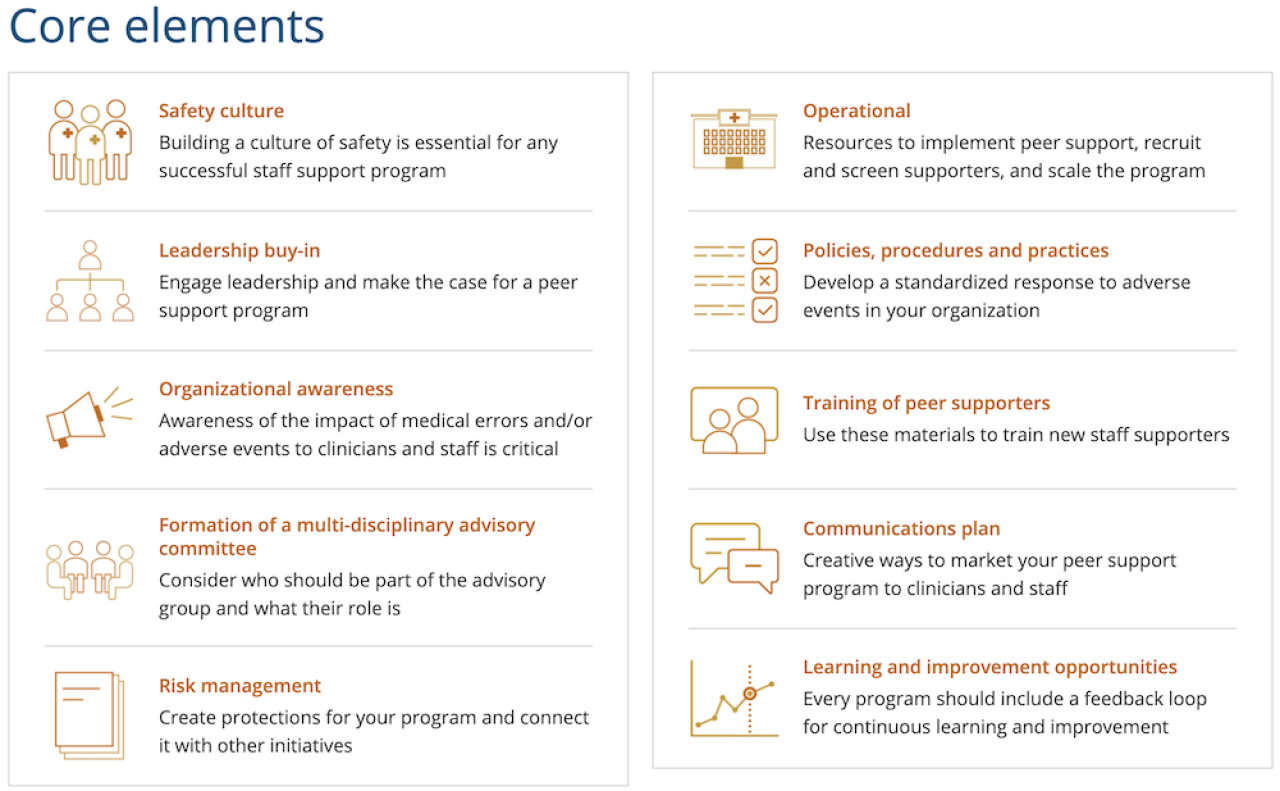New toolkit helps expand peer support for clinicians and staff
A new toolkit from the Betsy Lehman Center aims to help health care organizations create or expand peer support opportunities for clinicians and staff. Each section of the online toolkit focuses on key elements of a successful peer support program — from gaining leadership buy-in to creating policies and collecting data.
Research shows that peer support is an effective way to help members of the health care workforce recover from difficult feelings when something goes wrong in patient care. COVID-19 cases, hospitalizations and deaths have also added to the stresses and potential for “burnout” of all who work in health care, including non-clinical staff.
The new peer support toolkit was a collaborative effort to address the work-related emotional needs of clinicians and staff.

“In health care, we are too often working in silos,” says Linda Kenney, Director of Peer Support Programs at the Betsy Lehman Center. “That’s why I’m so proud of this toolkit. It’s the result of people across the country collaborating, sharing resources and working together to develop best practices."
More than a year ago, the Betsy Lehman Center launched a pilot program to provide consultation and hands-on training to 13 hospitals in Massachusetts developing peer support programs in their organizations. In recent months, the Center has helped participating hospitals form a learning collaborative to discuss challenges and successes.
"I don’t know what I would do without this learning community. Being able to bounce ideas off of each other and share resources has been integral to our success,” says Beth Welborn, Peer Support Program Manager at Southcoast Health. “With the toolkit, those resources will now be available for others, too.”
The Center is actively seeking additional hospitals and other health care facilities to build new peer support programs and scale existing programs. Simultaneously, the Center is building a network of patients and families to provide support to one another when medical care or treatments have caused unexpected harm.
“We know that difficult events in patient care take a significant emotional toll on many people, including patients, family members, and health care workers” Kenney says. “I applaud the hospital leaders who have made this a priority and those working tirelessly to implement peer support in their organizations. It brings me joy to see clinicians and staff finally getting the support they need.”
If you are interested in working with the Betsy Lehman Center to develop a peer support program in your hospital, ambulatory surgical center, community health center, or other outpatient setting, please email Linda.Kenney@BetsyLehmanCenterMA.gov.